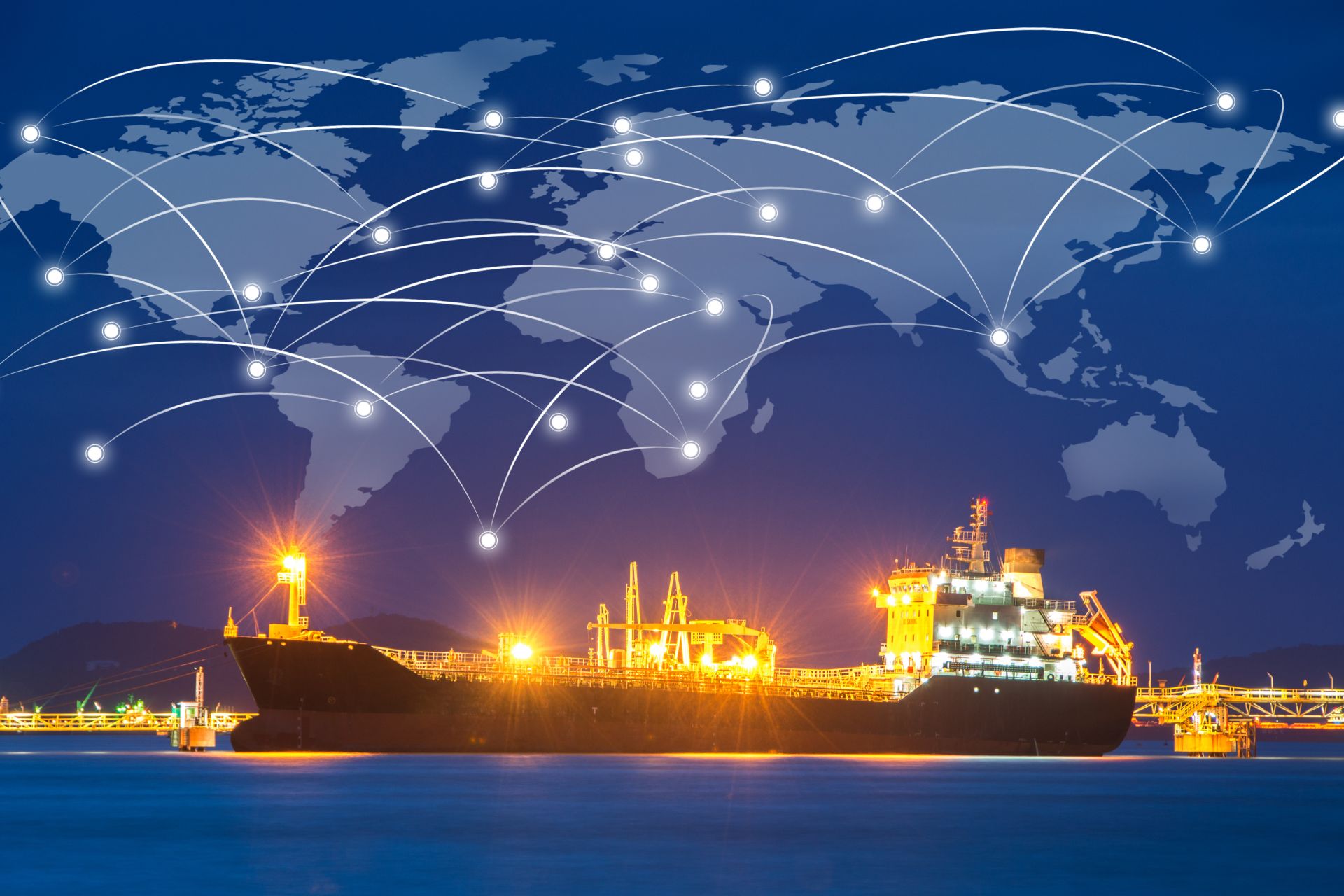Written by
Christopher Callaghan
Published on
July 14, 2025


An iMARCK Resources Insight on Risk, Responsibility, and Global Logistics
At iMARCK Resources, we engage daily in high-stakes international transactions across multiple sectors—including mining, infrastructure, utilities, timber, agriculture, and the global gold market. Whether facilitating a logistics partnership for a mining site in Africa, structuring an agricultural export deal in South America, or coordinating multi-modal shipping for utility components destined for Southeast Asia, clarity in contracts is not just helpful—it is essential. One of the most critical tools for achieving that clarity is the correct use of Incoterms, or International Commercial Terms.
Published by the International Chamber of Commerce (ICC), Incoterms are internationally recognized rules that define the respective obligations of buyers and sellers under international sales contracts. First introduced in 1936 and most recently updated in 2020, these terms have become indispensable in establishing a standardized global trade language, removing ambiguities from cross-border transactions. Incoterms clearly outline who is responsible for transportation, insurance, customs clearance, and payment of duties, as well as when risk transfers from seller to buyer.
A recent engagement at iMARCK involved assisting a timber grower on one continent to structure a sale and shipment to a buyer on another. During internal review, a junior team member asked, “What is an Incoterm?” While the immediate answer was simple—“It’s a term that clarifies responsibilities in a shipment”—the full truth is far more nuanced. Incoterms are not mere shipping terms; they are a core legal framework embedded in the global trading system. Their correct use reduces disputes, ensures regulatory compliance, and enhances efficiency for all parties.
The most current revision, Incoterms 2020, comprises 11 individual terms divided into two primary categories based on transport mode. The first category applies to multimodal transport (road, rail, air, sea, or any combination), and includes EXW, FCA, CPT, CIP, DAP, DPU, and DDP. The second applies only to maritime transport, covering FAS, FOB, CFR, and CIF.
Let’s first explore the multimodal transport terms.
EXW (Ex Works) places maximum responsibility on the buyer. The seller simply makes goods available at their premises or another named place, with the buyer assuming all costs and risks from that point forward.
FCA (Free Carrier) requires the seller to deliver the goods to a carrier or other party designated by the buyer at a named location. Risk transfers upon delivery to the carrier.
CPT (Carriage Paid To) stipulates that the seller pays freight to the destination, but risk transfers to the buyer once the goods are handed to the carrier.
CIP (Carriage and Insurance Paid To) is similar, except the seller must also procure minimum insurance coverage for the buyer’s benefit.
DAP (Delivered At Place) means the seller bears all costs and risks up to the agreed destination, excluding unloading.
DPU (Delivered at Place Unloaded) is the only term where the seller must unload the goods at the named destination.
DDP (Delivered Duty Paid) represents the maximum obligation for the seller, who must handle everything—including customs clearance and payment of import duties—before final delivery to the buyer.
Now turning to maritime-only terms, we begin with FAS (Free Alongside Ship), under which the seller delivers goods alongside the vessel at the port of shipment, and the buyer bears the risk and cost from that point forward.
FOB (Free On Board) increases the seller’s responsibility to include loading the goods onto the vessel.
CFR (Cost and Freight) obligates the seller to pay for transport to the port of destination, but risk passes to the buyer once the goods are on board.
CIF (Cost, Insurance, and Freight) is similar, but the seller must also obtain marine insurance—again, with risk transferring upon vessel loading.
From a risk management perspective, Incoterms are indispensable. They provide clear delineation of when liability for loss or damage passes from seller to buyer. For instance, under CIF, the seller’s responsibility includes not only transport to the destination port but also the procurement of insurance for the buyer. This reduces the buyer’s exposure to uninsurable or unanticipated losses, particularly in high-risk transport environments.
The legal implications of Incoterms should not be underestimated. When properly incorporated into contracts, they provide predictability and legal certainty, aligning expectations across jurisdictions. Conversely, misused or vaguely stated Incoterms can lead to expensive legal disputes, delivery delays, and duplicated costs. At iMARCK, we emphasize the necessity of integrating the exact version and term (e.g., "Incoterms 2020 – CIF, Port of Rotterdam") into every international sales agreement we support.
Several practical examples demonstrate their value. In one case, a Japanese electronics manufacturer sold goods to a German retailer using CIF Hamburg. The seller bore the cost, insurance, and freight to Hamburg, with risk transferring once the goods were loaded onboard the vessel in Yokohama. This arrangement protected the buyer during ocean transit and allowed the seller to control shipment coordination. In another case, a Brazilian agricultural exporter used FOB Santos to sell coffee beans to a U.S. buyer. The seller was responsible only for loading the goods on the vessel. From that point, the buyer assumed all risks and logistics, including ocean freight and customs.
Looking ahead, the future of Incoterms is closely tied to the ongoing evolution of global trade. As technologies like blockchain and digital smart contracts become more widely adopted, the use of Incoterms will become even more embedded into automated trade platforms. Meanwhile, global sustainability efforts and shifting geopolitical supply chain dynamics may drive the creation of new Incoterms clauses or amendments focused on carbon footprint tracking, ESG accountability, or digital shipment verification.
At iMARCK Resources, we integrate Incoterms into every trade structure with precision and purpose. They allow our clients—and their international partners—to operate from a shared framework of risk allocation, cost efficiency, and mutual accountability. More importantly, our use of Incoterms reflects a broader commitment to ethical, transparent, and lawful business practices. Whether moving refined gold, utility-grade equipment, or agricultural commodities, we ensure every contract uses the appropriate Incoterm to protect the integrity of the deal and the reputation of all involved.
For governments, corporations, and investors operating across borders, understanding and applying Incoterms correctly is not optional—it is foundational. At iMARCK, we help you do exactly that.